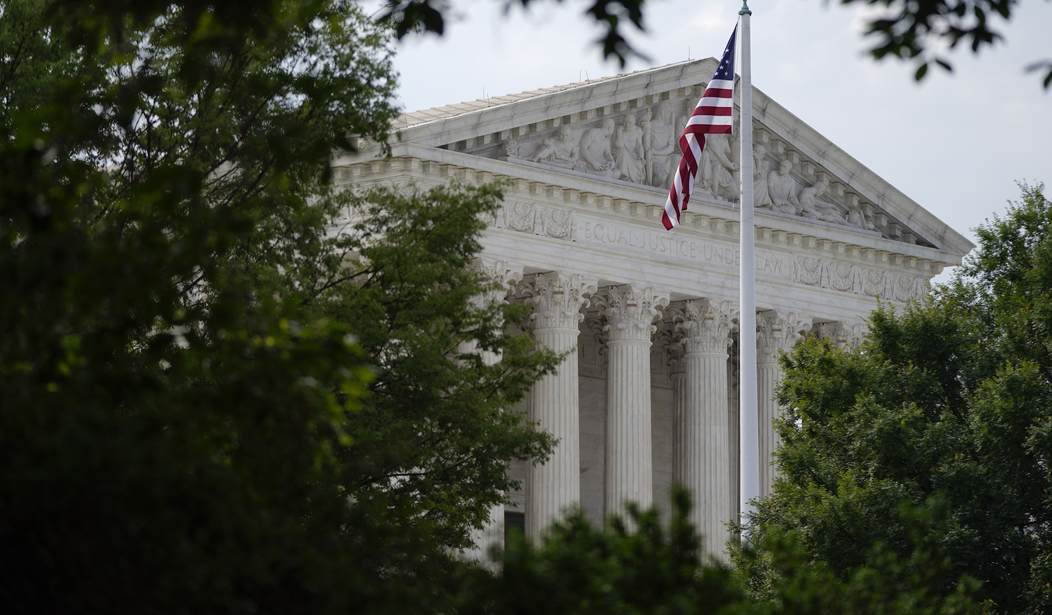The Supreme Court just heard arguments in the case Students for Fair Admissions v. Harvard and Students for Fair Admissions v. the University of North Carolina.
It's about affirmative action -- universities using race and ethnicity in their admissions policies.
Students for Fair Admissions argues that both universities violate the U.S. Constitution in their discriminatory admissions policies. They discriminate against Asian Americans in favor of whites, Blacks, and Hispanics and unlawfully discriminate to achieve diversity that could be achieved in a race-neutral fashion.
The consensus is that Students for Fair Admissions will win this case and racial discrimination in university admission programs will be gone.
The decision will likely overturn Grutter v. Bollinger, which, in 2003, authorized universities to discriminate as an input factor in the pursuit of diversity goals.
This will be a victory for those who see affirmative action as a mistake of the civil rights movement, inconsistent with its goals and the Constitution.
Let's recall again the words of Dr. Martin Luther King Jr. in his great "I Have a Dream Speech" in 1963. "I have a dream that my four little children will one day live in a nation where they will not be judged by the color of their skin but by the content of their character."
Next year it will be 60 years since that speech. Would King have thought that more than a half-century after he spoke those words we would be still so far from that dream?
One reason is the Civil Rights Act of 1964, the crown jewel of the movement King led.
The act went way beyond the goal of making discrimination illegal. It was constructed to use government as the means to achieve a just society.
Recommended
The Equal Employment Opportunities Commission was created, and the door opened for affirmative action, quotas, and the acceptance of the principle that it is lawful to discriminate in favor of certain racial groups to achieve social justice.
Not long after came the categorization of the whole American population into racial groups.
By the 1970s, the entire U.S. population was classified by race and ethnicity through a new racial code called Statistical Directive 15.
We were no longer just Americans. Now every American is formally categorized as white, Black, Hispanic, Asian/Pacific Islander, and American Indian/Alaskan Native.
Why? We entered a new era in which it was assumed that government force and action were needed to achieve social justice, and toward this end, every citizen needed to be put in a racial or ethnic category.
King might as well have said, "I have a dream that one day we will categorize every American according to their race and ethnicity and the government will use this as a basis to decide who should have what."
In the oral arguments in the case against Harvard and UNC, Justice Clarence Thomas questioned what diversity means and achieves. "I've heard the word diversity quite a few times, and I don't have a clue what it means. It seems to mean everything to everyone."
The diversity that produces benefits in education is the diversity of opinion, and Harvard has virtually none. In the most recent annual survey that the Harvard Crimson does of the university faculty of Arts and Science, more than 80% self-identified as "liberal" or "very liberal." Only 1% self-identified as "conservative" and zero as "very conservative."
Chief Justice John Roberts got to the heart of the matter when he observed in Parents Involved v. Seattle in 2007, "The way to stop discrimination based on race is to stop discriminating based on race."
The good news is the Supreme Court seems ready to start turning this around. With the court finding discrimination in college admissions unconstitutional, we'll be taking a major step to restore individual freedom and dignity and end the demeaning, dehumanizing idea of reducing individuals to racial and ethnic categories.
Star Parker is president of the Center for Urban Renewal and Education and host of the weekly television show "Cure America with Star Parker." To find out more about Star Parker and read features by other Creators Syndicate writers and cartoonists, visit the Creators Syndicate website at www.creators.com.

























Join the conversation as a VIP Member